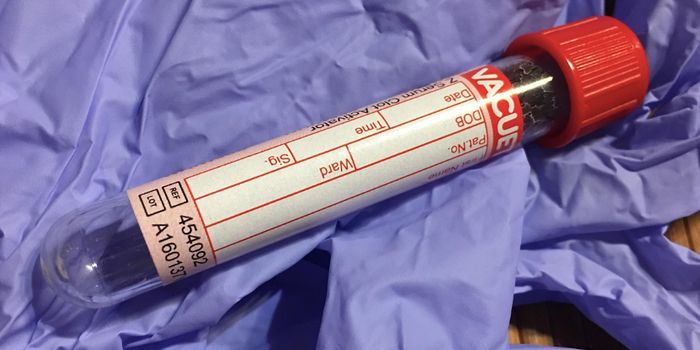Neuroscience
Got Milk to Fight Oxidative Brain Stress?
MAR 24, 2015 10:02 AM PDT
Share
Need more fiber in your diet? The microbes in your gut do, too.
 Move over yogurt. Turns out your microbiota need more fiber in their diet.
Move over yogurt. Turns out your microbiota need more fiber in their diet.If you feel like you've heard just about all there is to hear about your microbiome, here's something new. While you may have been stocking up on probiotics to nourish the good bacteria in your gut, it might be better to load them up on high-fiber foods.
That's the subject of a recent article in Scientific American: Fiber-Famished Gut Microbes Linked to Poor Health
The article reviews some of the findings presented at a Keystone Symposia conference on the gut microbiome. As the article, by Katherine Harmon Courage, explains:
Your gut is the site of constant turf wars. Hundreds of bacterial species-along with fungi, archaea and viruses-do battle daily, competing for resources. Some companies advocate for consuming more probiotics, live beneficial bacteria, to improve microbial communities in our gut, but more and more research supports the idea that the most powerful approach might be to better feed the good bacteria we already harbor. Their meal of choice? Fiber.
Fiber has long been linked to better health, but new research shows how the gut microbiota might play a role in this pattern. One investigation discovered that adding more fiber to the diet can trigger a shift from a microbial profile linked to obesity to one correlated with a leaner physique. Another recent study shows that when microbes are starved of fiber, they can start to feed on the protective mucus lining of the gut, possibly triggering inflammation and disease.
"Diet is one of the most powerful tools we have for changing the microbiota," Justin Sonnenburg, a biologist at Stanford University, said earlier this month at a Keystone Symposia conference on the gut microbiome. "Dietary fiber and diversity of the microbiota complement each other for better health outcomes." In particular, beneficial microbes feast on fermentable fibers-which can come from various vegetables, whole grains and other foods-that resist digestion by human-made enzymes as they travel down the digestive tract. These fibers arrive in the large intestine relatively intact, ready to be devoured by our microbial multitudes. Microbes can extract the fiber's extra energy, nutrients, vitamins and other compounds for us. Short-chain fatty acids obtained from fiber are of particular interest, as they have been linked to improved immune function, decreased inflammation and protection against obesity.
Today's Western diet, however, is exceedingly fiber-poor by historical standards. It contains roughly 15 grams of fiber daily, Sonnenburg noted. For most of our early history as hunter-gatherers, we were likely eating close to 10 times that amount of fiber each day. "Imagine the effect that has on our microbiota over the course of our evolution," he said.
Your bugs are what you eat
Not all helpful fiber, however, needs to come from the roots and roughage for which our ancestors foraged, new research suggests. Kelly Swanson, a professor of comparative nutrition at the University of Illinois at Urbana-Champaign, and his team found that simply adding a fiber-enriched snack bar to subjects' daily diets could swing microbial profiles in a matter of weeks. In a small study of 21 healthy adults with average U.S. fiber intake, one daily fiber snack bar (containing 21 grams of fiber) for three weeks significantly increased the number of Bacteroidetes bacteria and decreased the number of Firmicutes compared with levels before the study or after three weeks of eating fiber-free bars. Such a ratio-of more Bacteroidetes to fewer Firmicutes-is correlated with lower BMI. The findings were published in the January issue of the American Journal of Clinical Nutrition.
You can read the complete article at: http://www.scientificamerican.com/article/fiber-famished-gut-microbes-linked-to-poor-health1/
You May Also Like
Loading Comments...

![Everything You Need To Know About NGS [eBook]](https://d3bkbkx82g74b8.cloudfront.net/eyJidWNrZXQiOiJsYWJyb290cy1pbWFnZXMiLCJrZXkiOiJjb250ZW50X2FydGljbGVfcHJvZmlsZV9pbWFnZV9mNTM1ZjIyYzA5MDE5ZmNmMWU5NmI0ZDc4NWU2MzdiZTZlN2I5ZDk5XzE4NDUuanBnIiwiZWRpdHMiOnsidG9Gb3JtYXQiOiJqcGciLCJyZXNpemUiOnsid2lkdGgiOjcwMCwiaGVpZ2h0IjozNTAsImZpdCI6ImNvdmVyIiwicG9zaXRpb24iOiJjZW50ZXIiLCJiYWNrZ3JvdW5kIjoiI2ZmZiJ9LCJmbGF0dGVuIjp7ImJhY2tncm91bmQiOiIjZmZmIn19fQ==)






